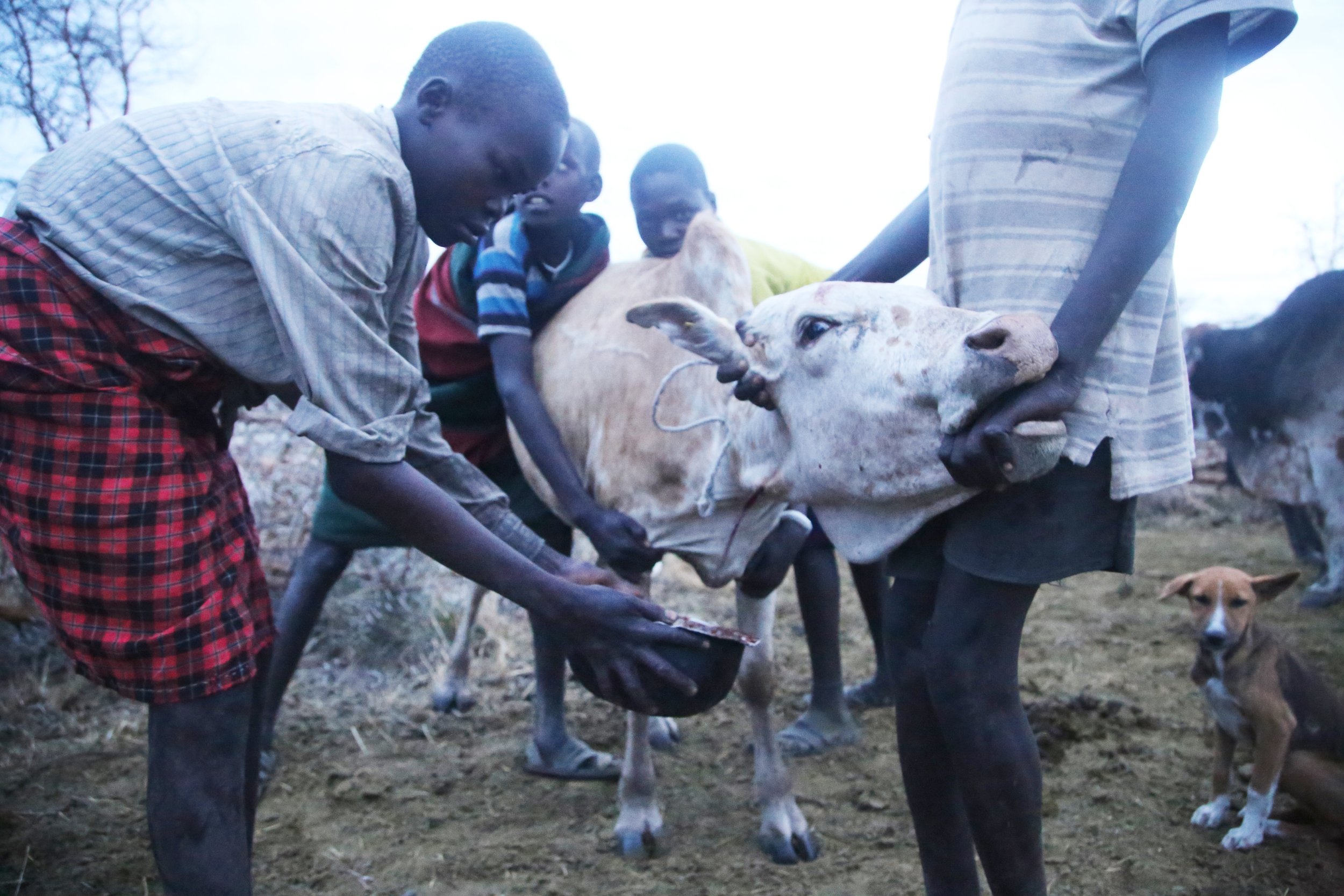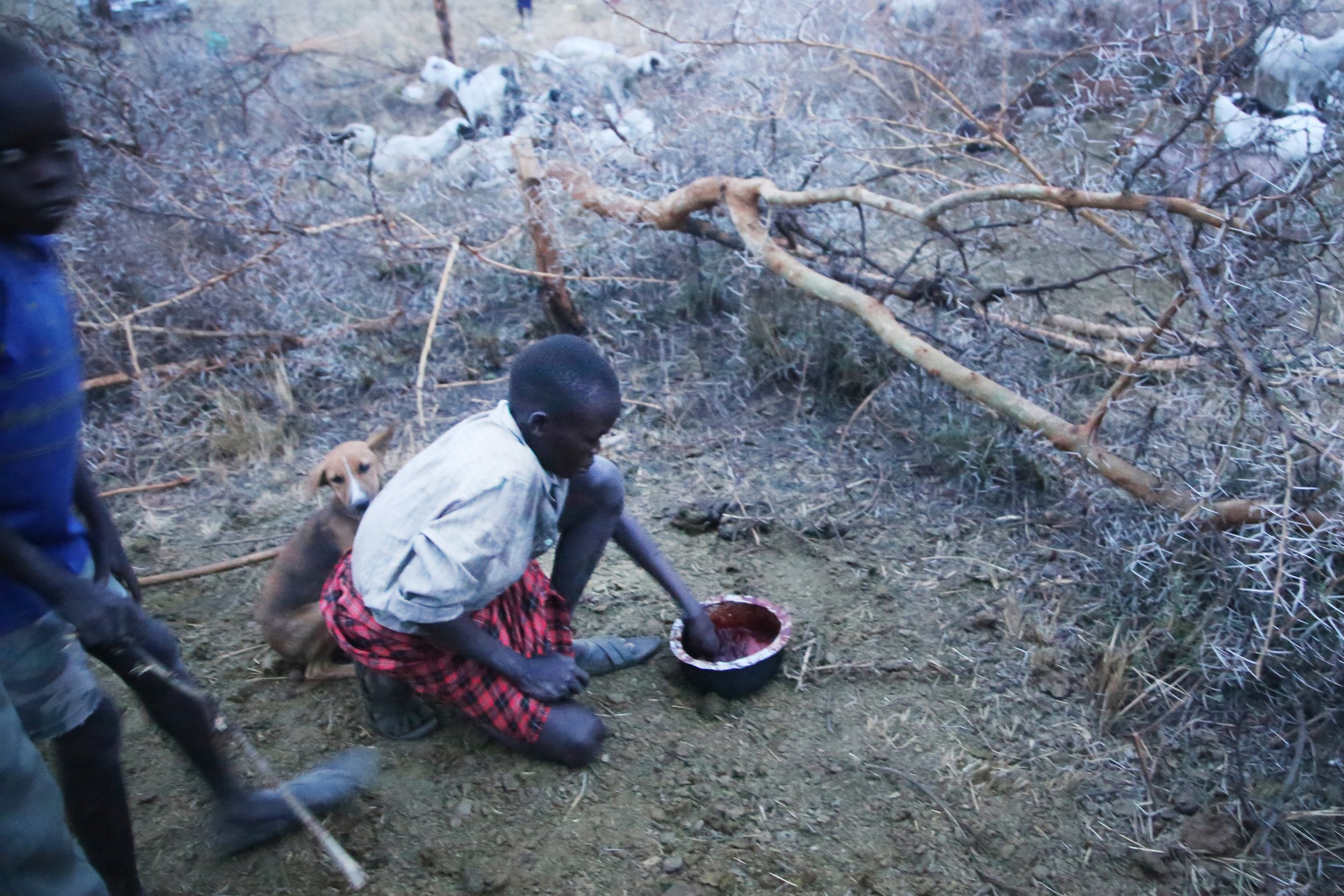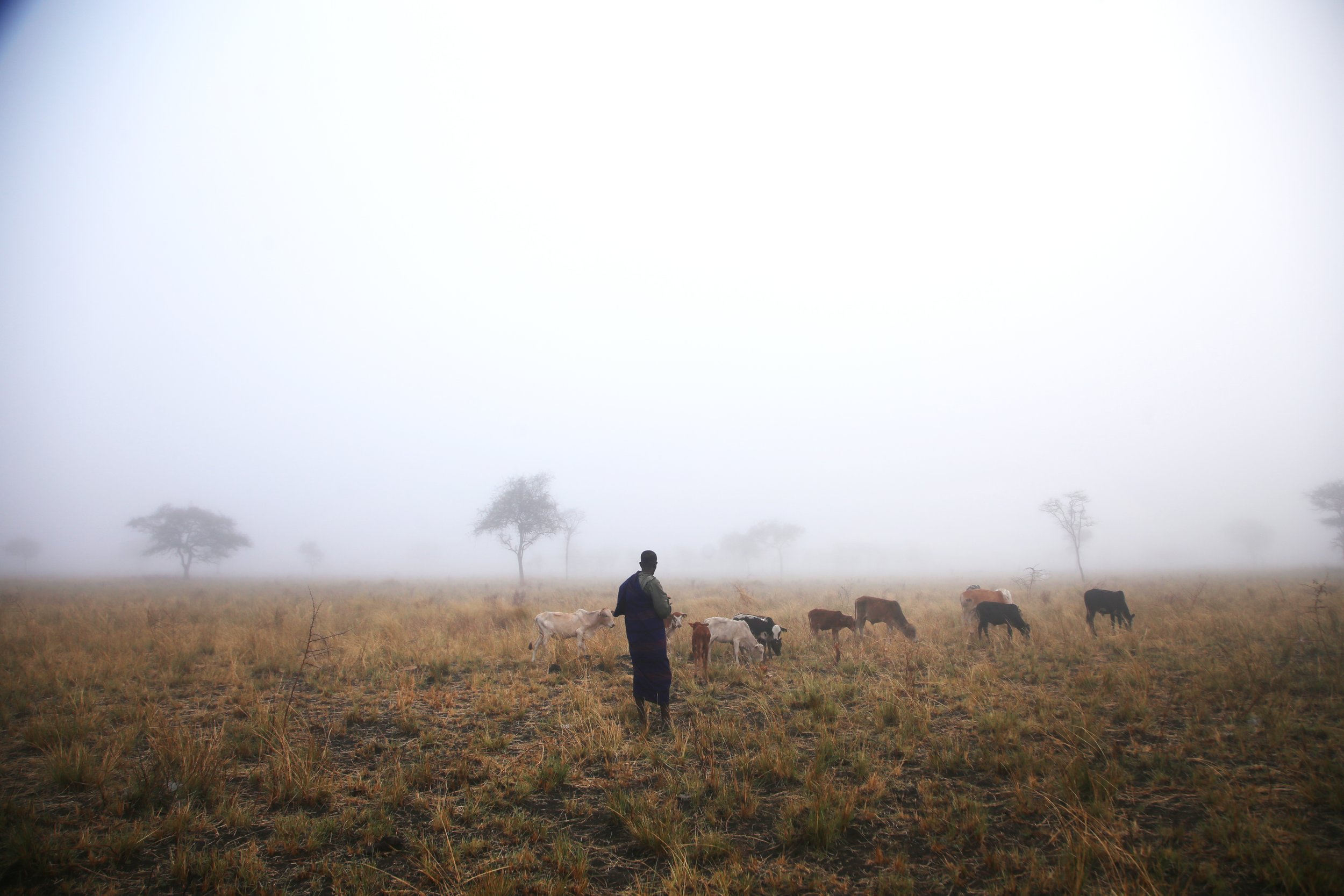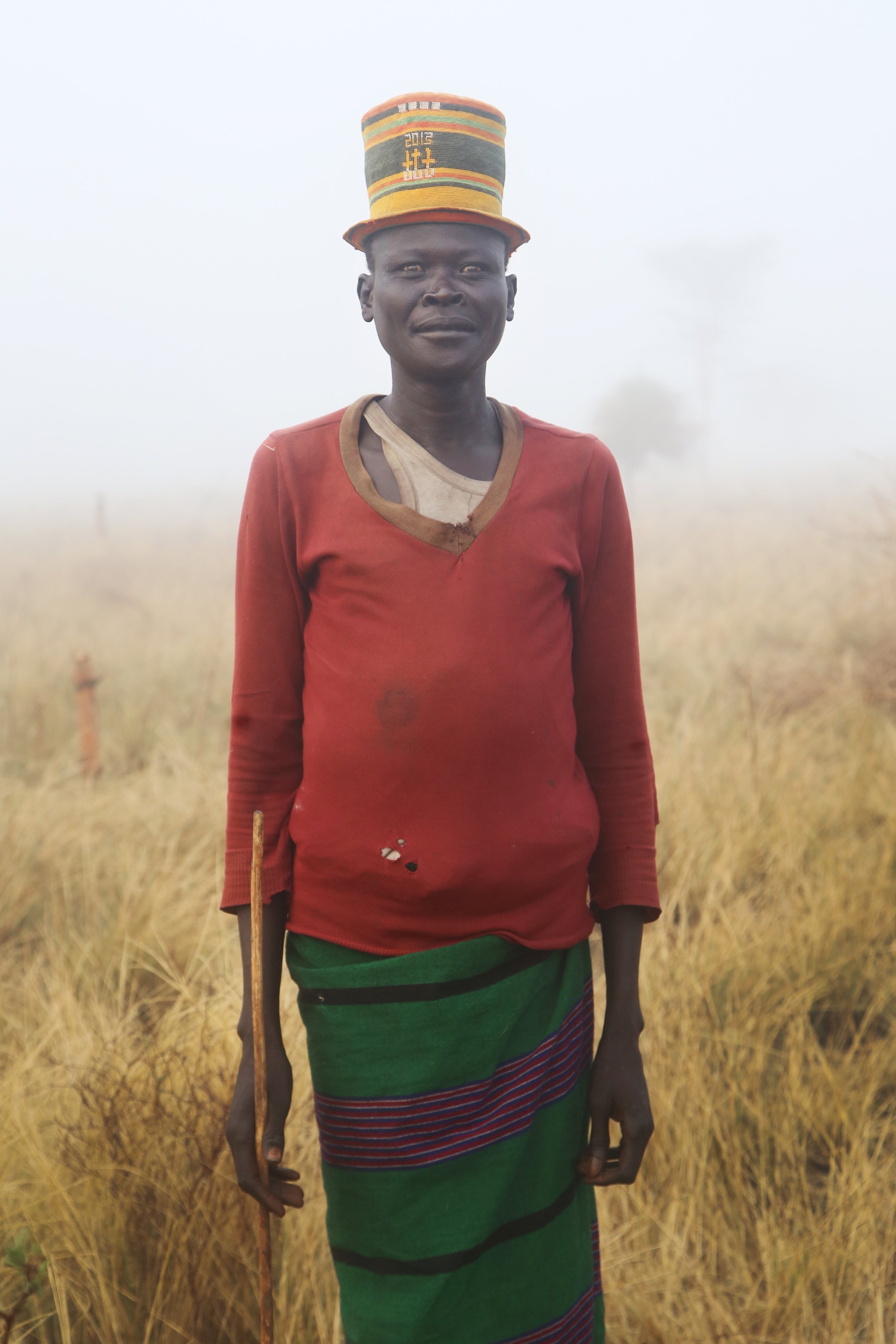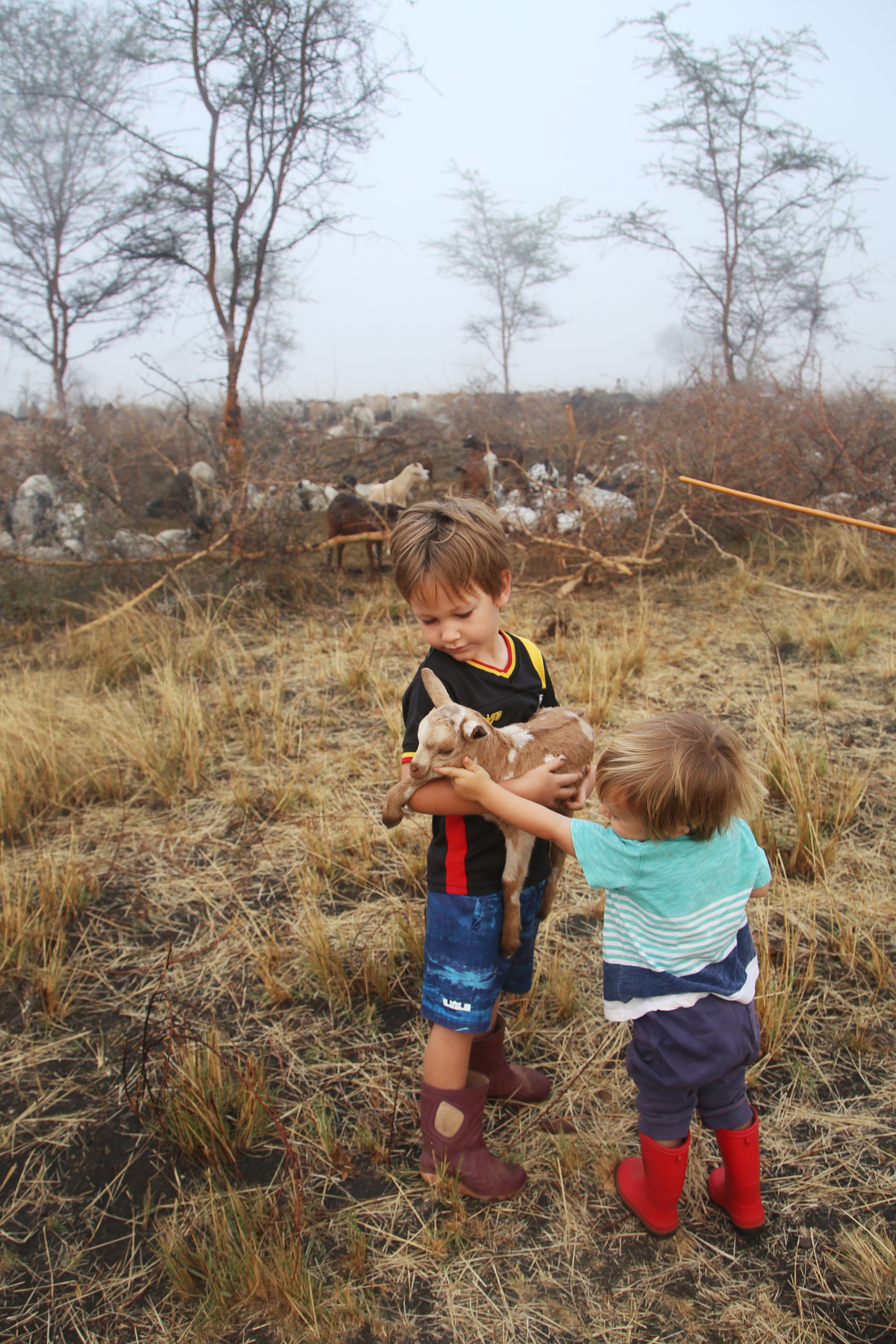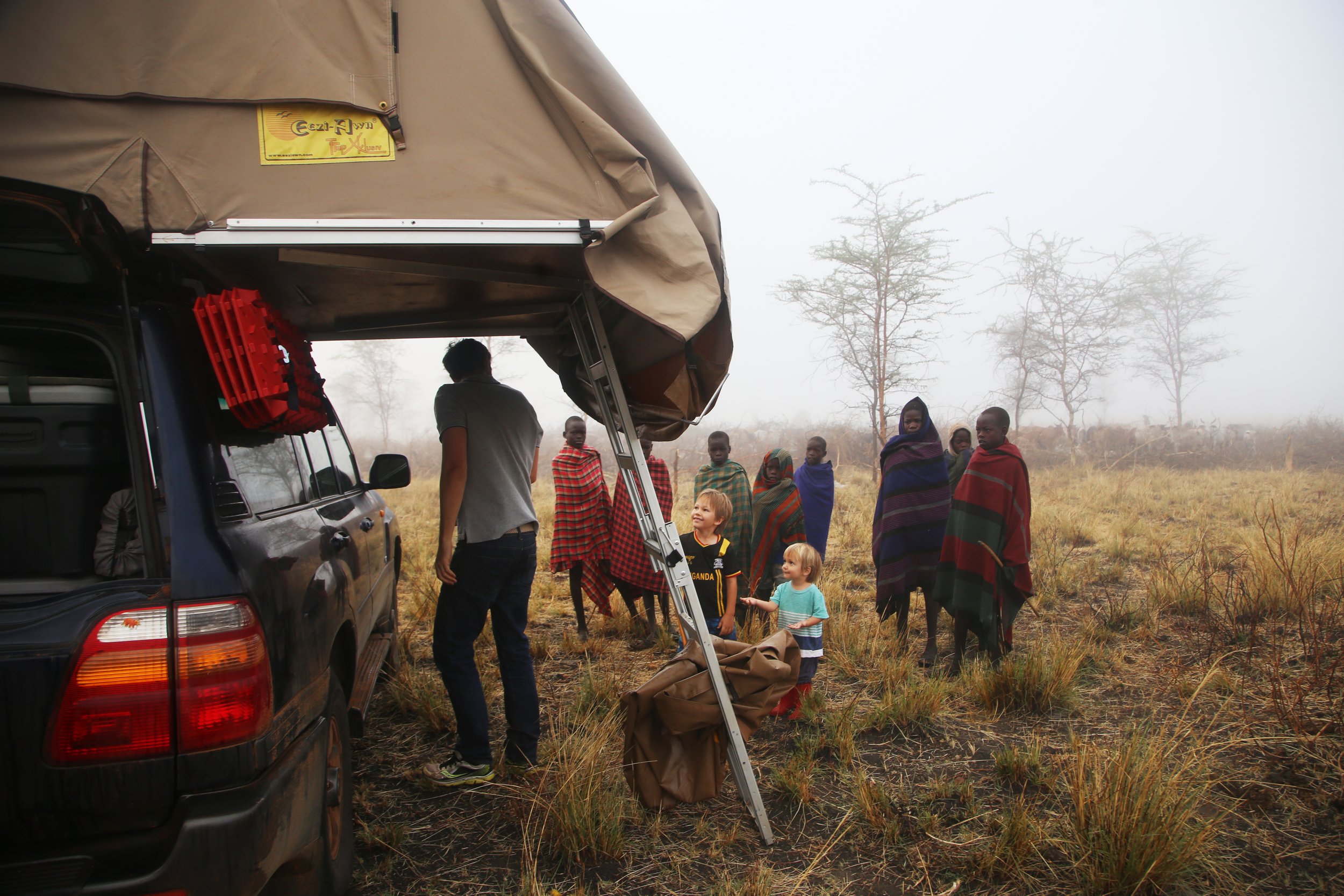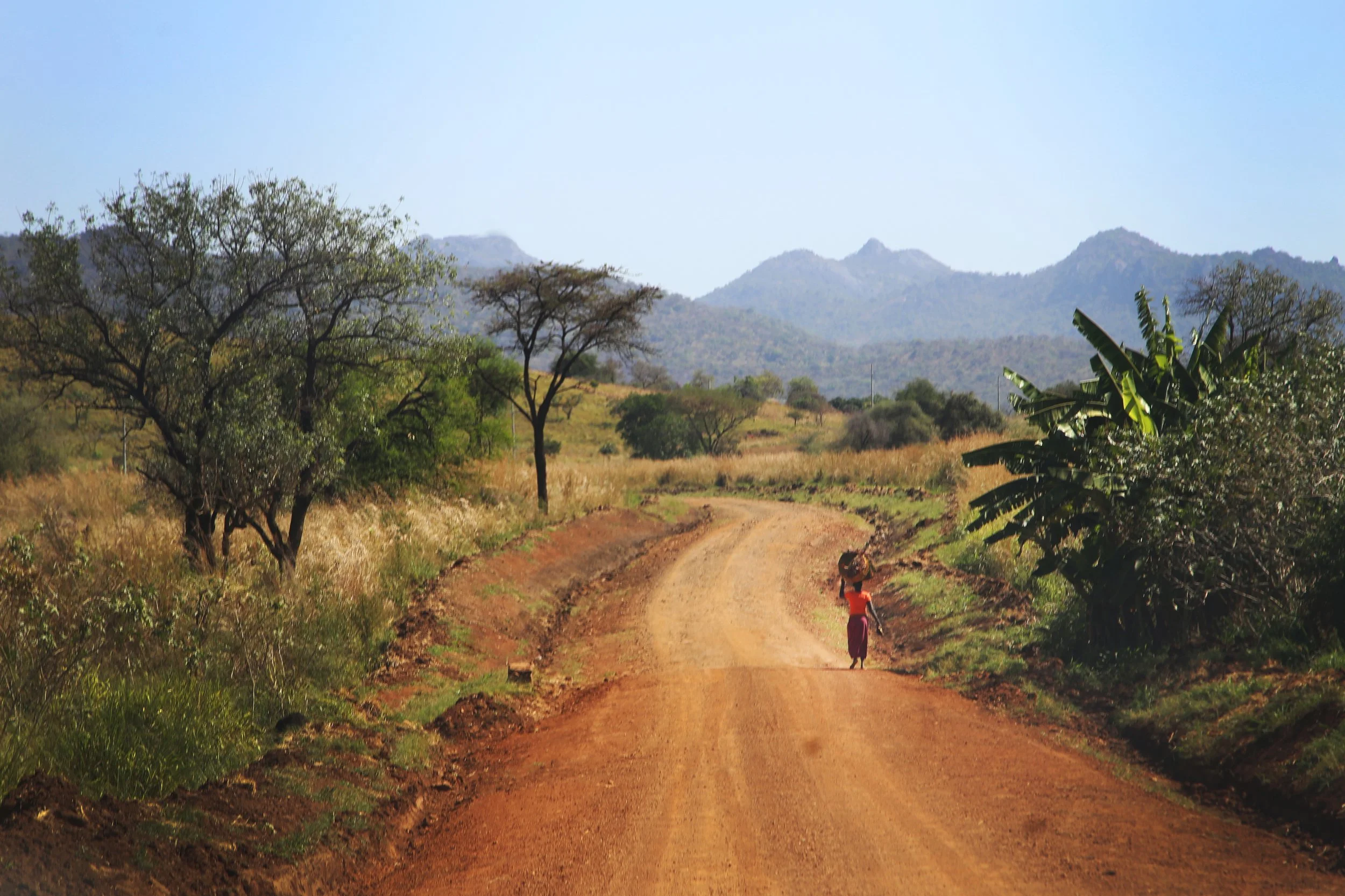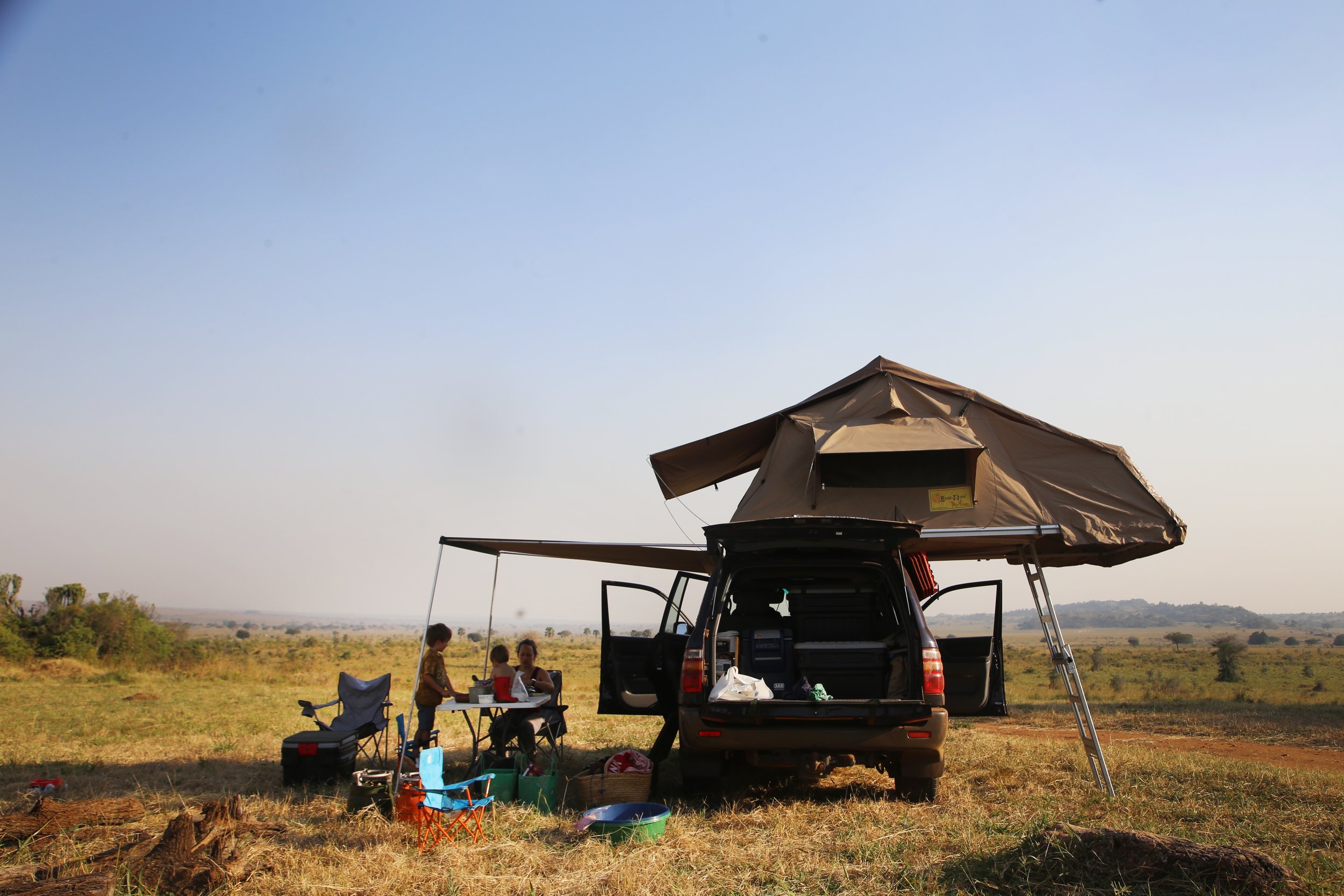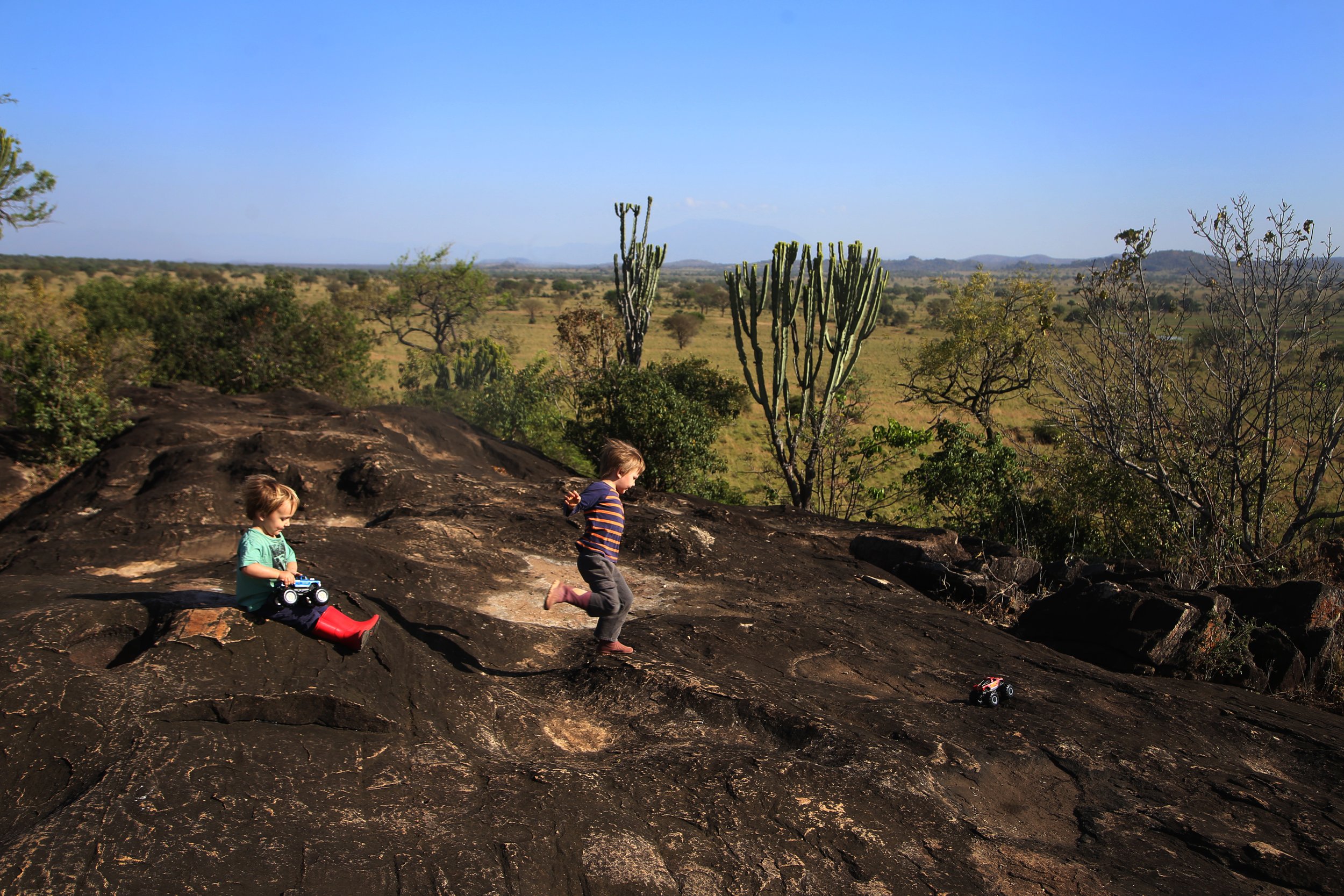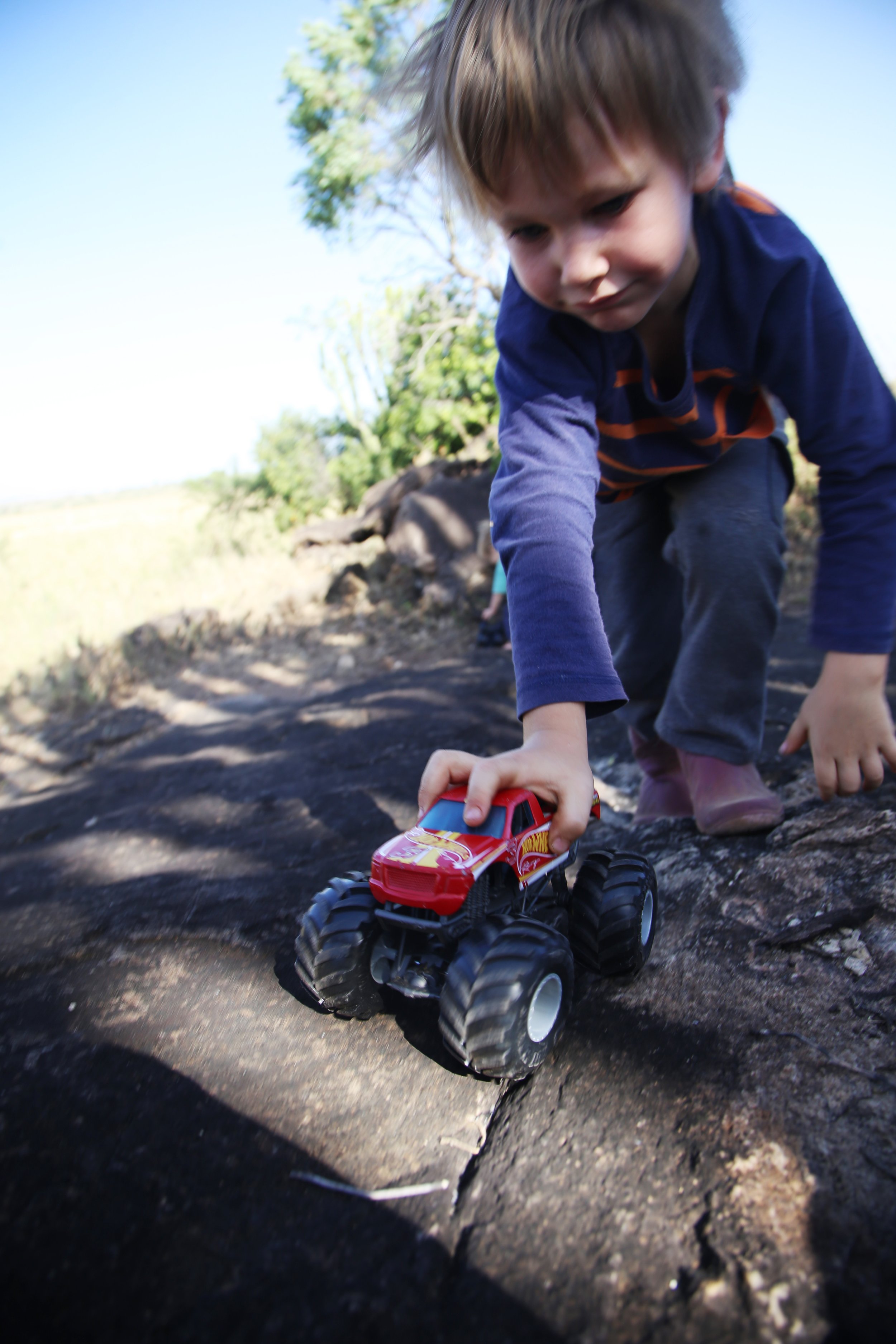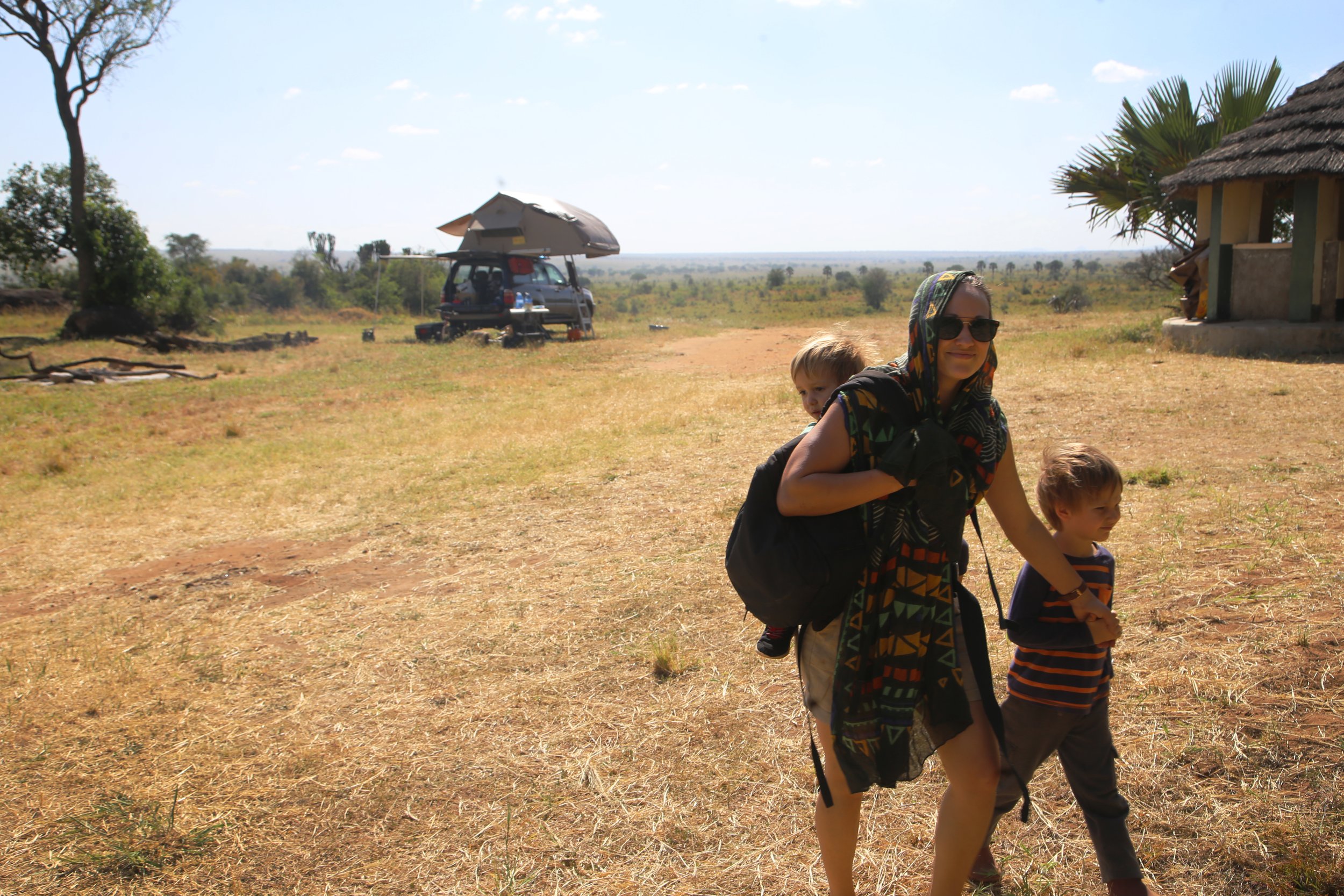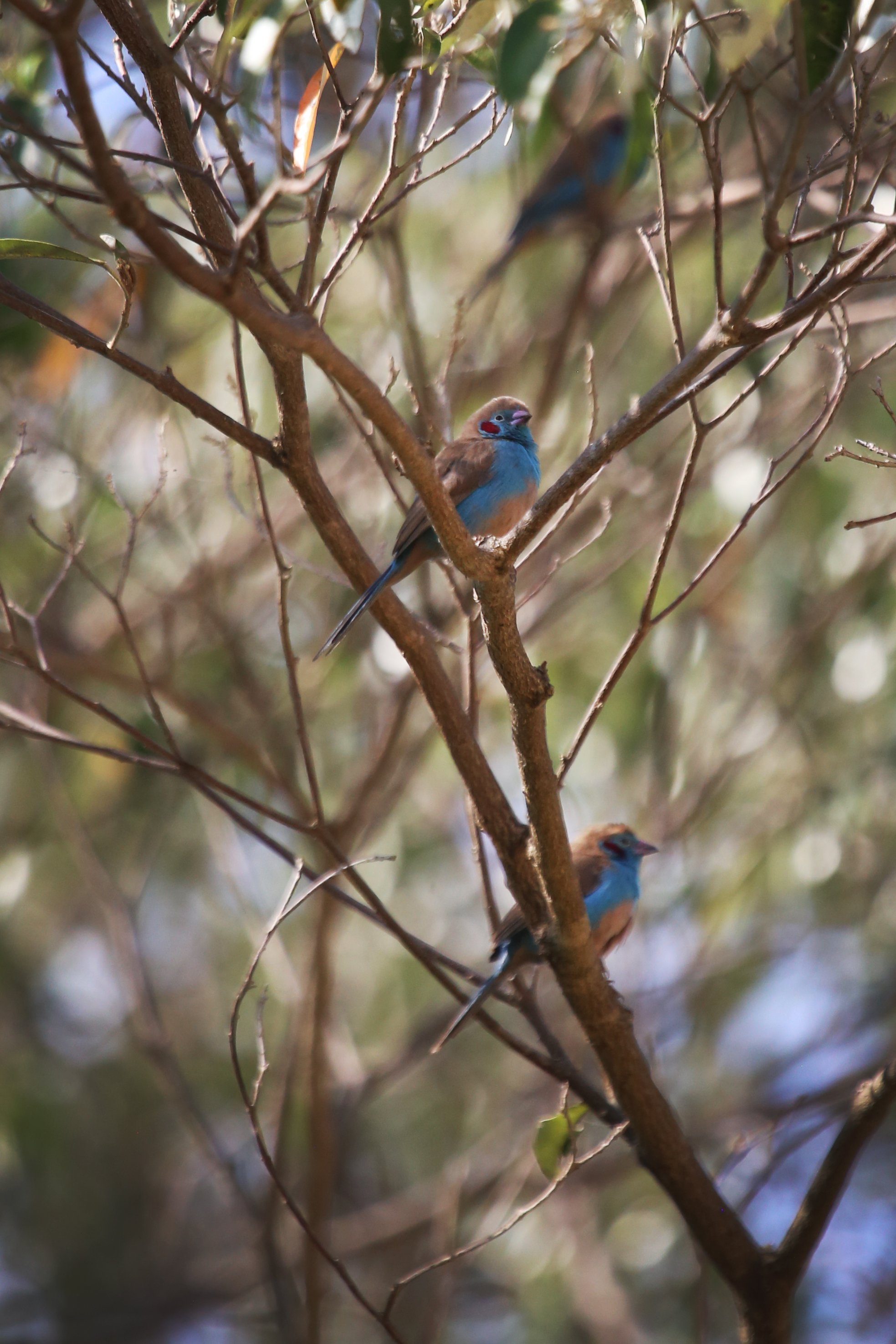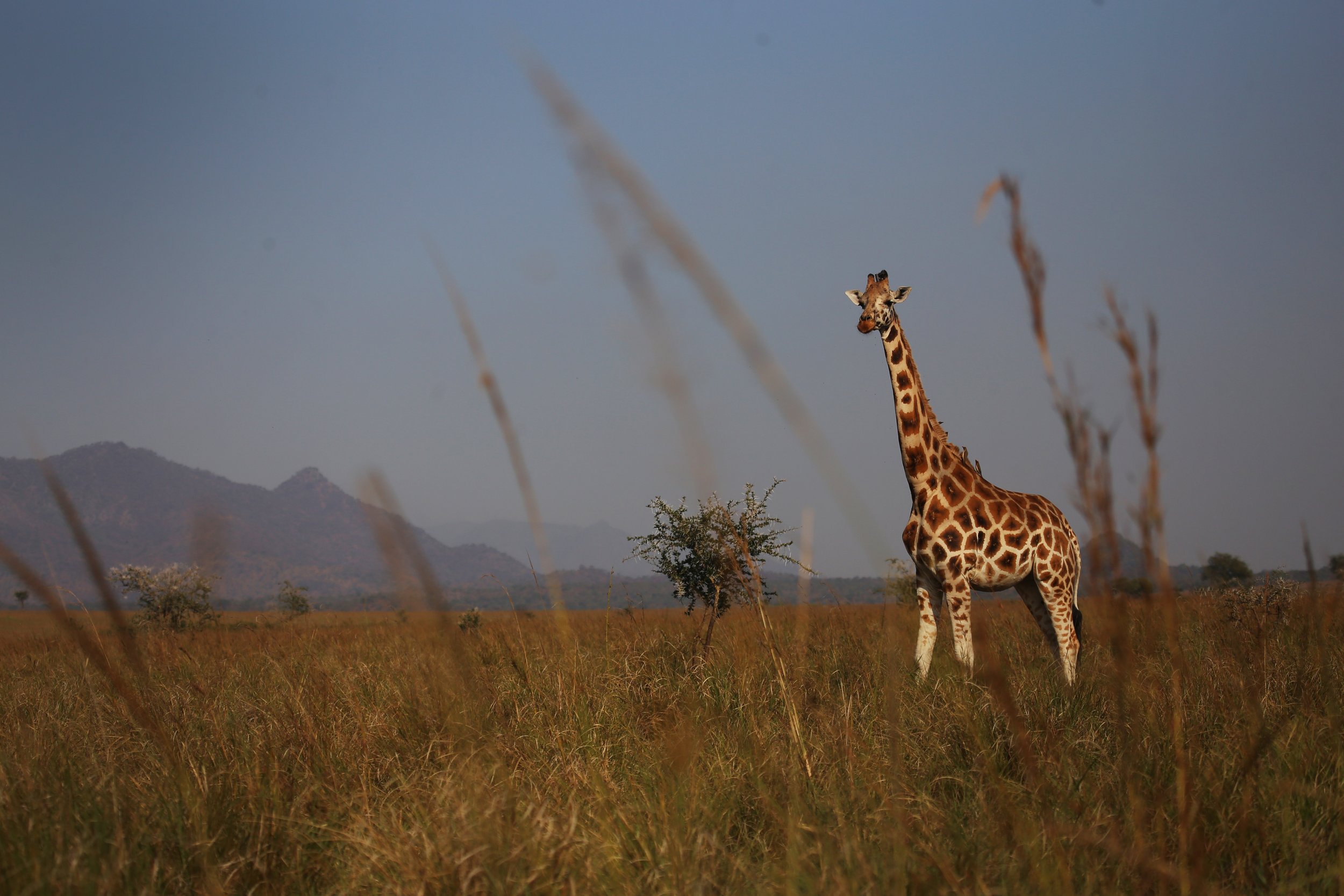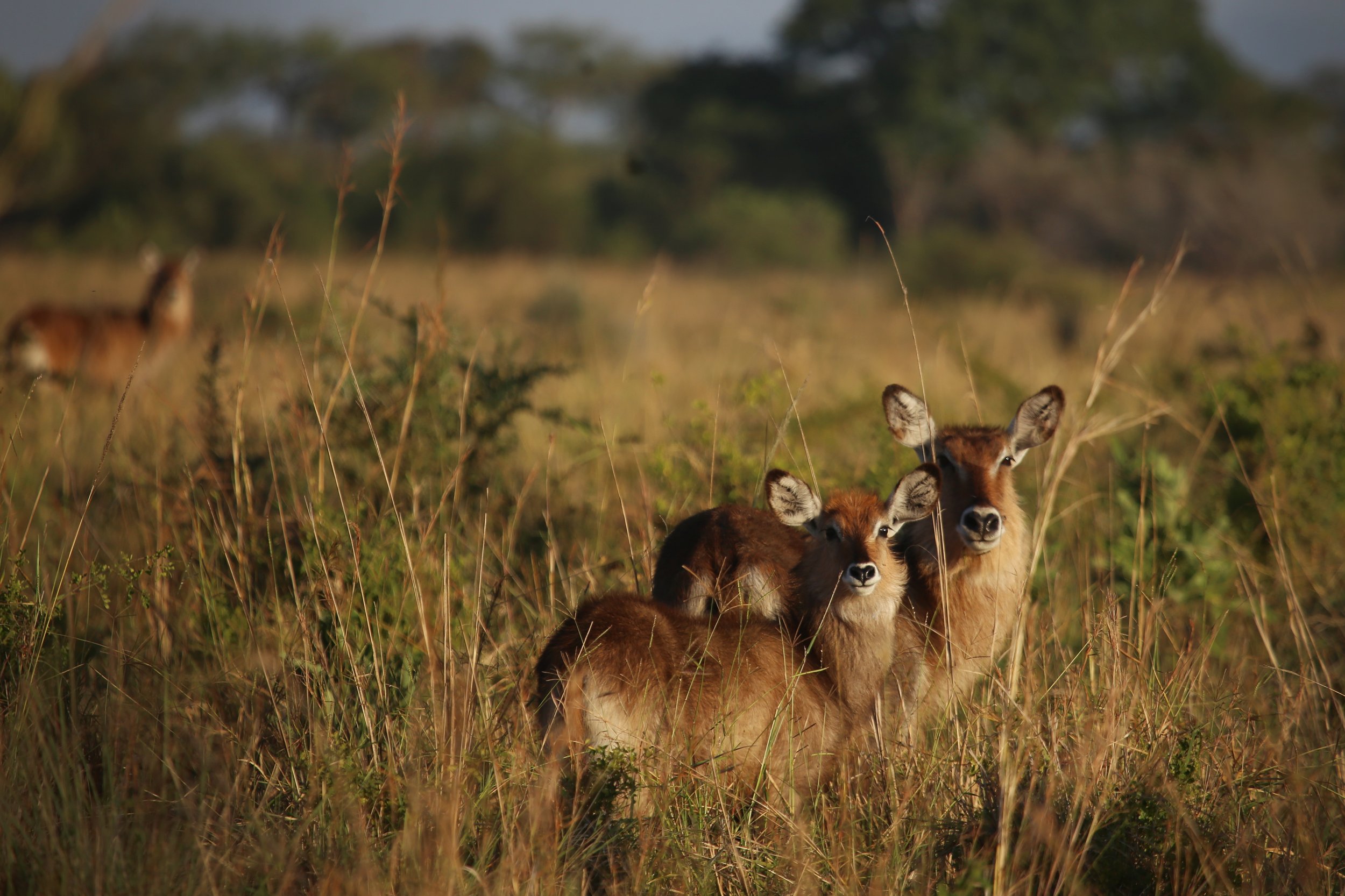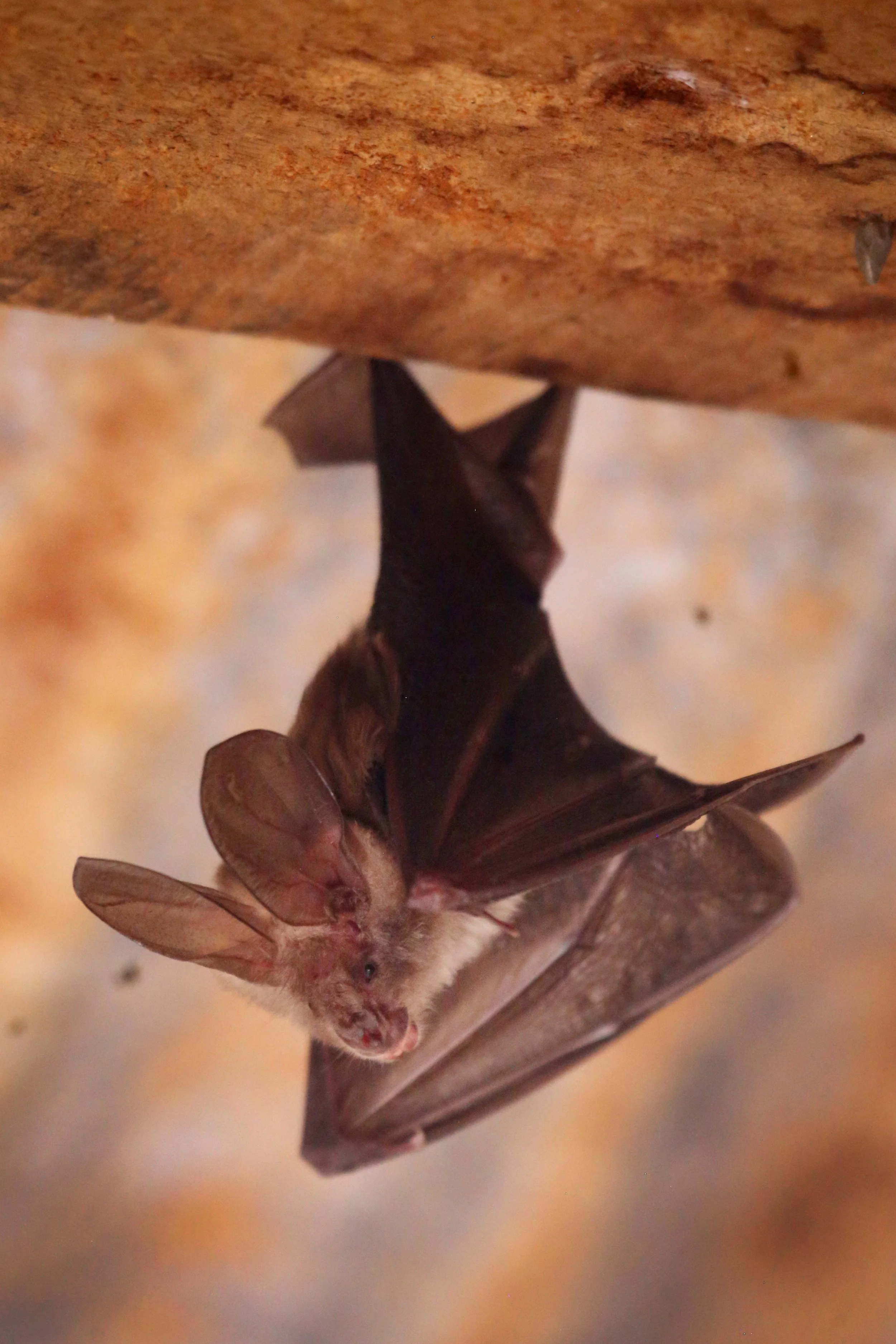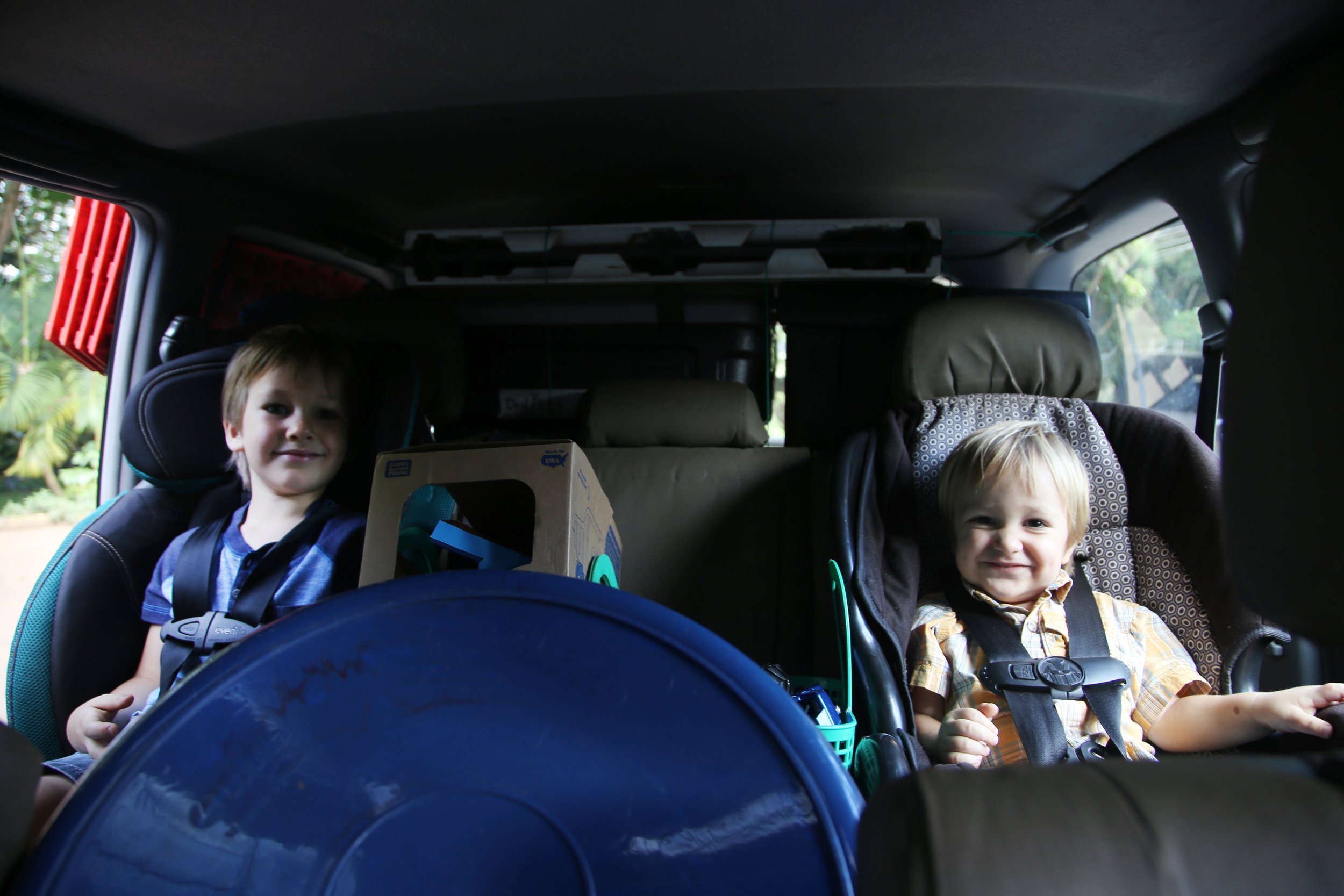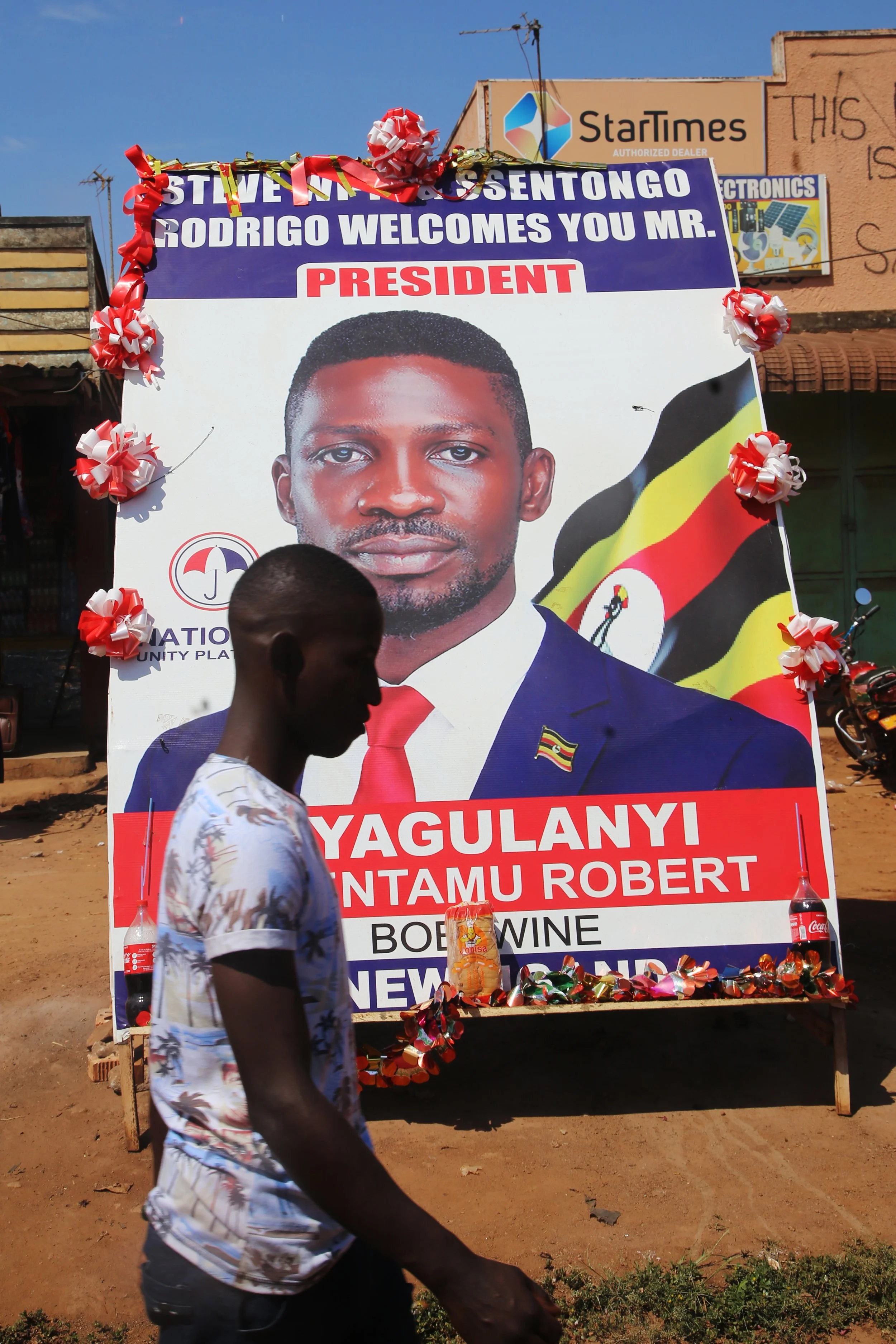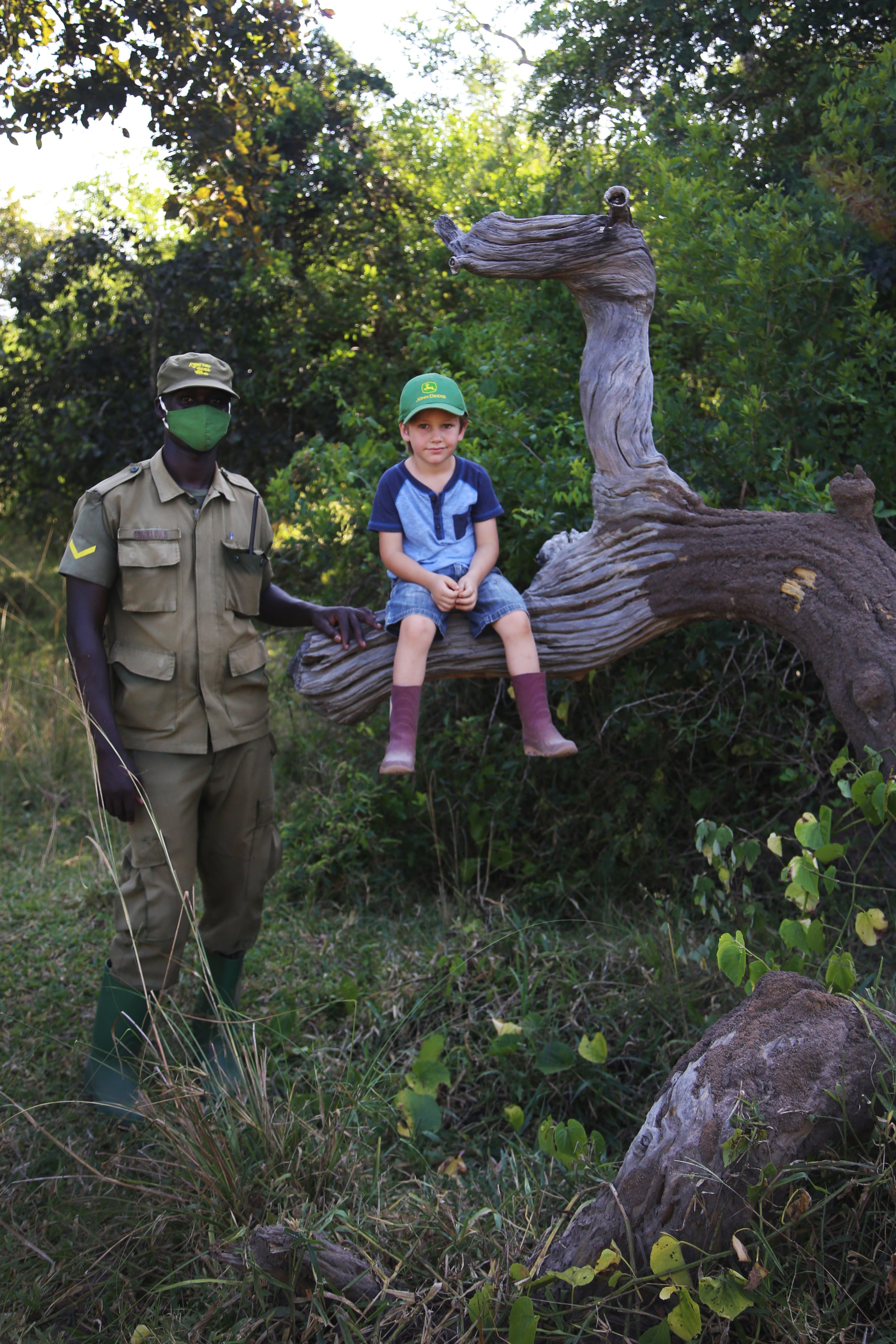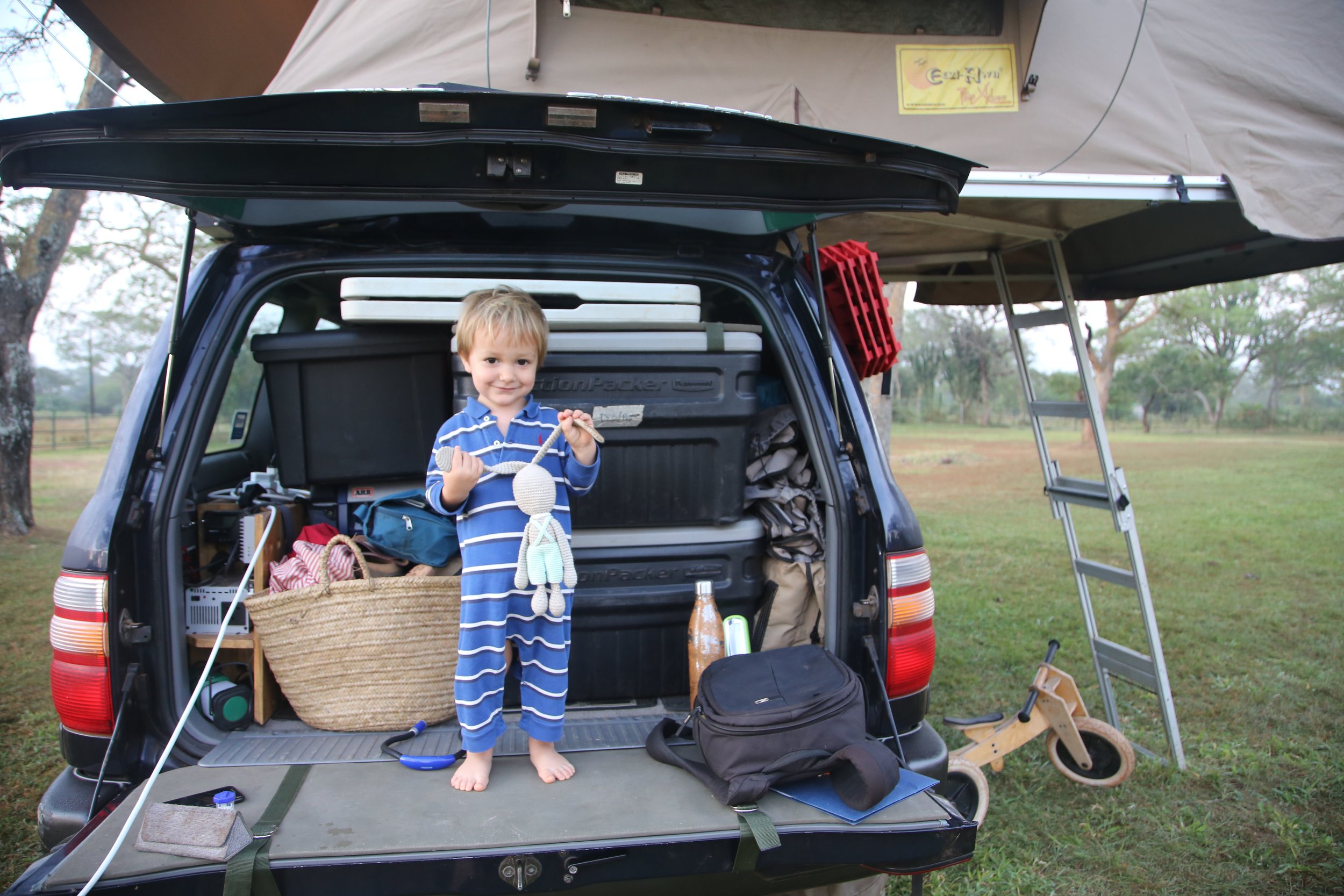After enjoying a New Years’ lunch in a Karamajong village, our guide, Thomas, took us further off the beaten path. We sat upright and alert in the Landcruiser as he pointed us through an open plain where there was only a small path made by cattle - a path that often disappeared, leaving us to guess where it might lead. Thomas used the mountains in the distance to know the direction and we drove along slowly, scared we may pop a tire on one of the many broken stumps scattered around the plain. It was nearly an hour later when we finally saw signs of life - a boy of about 8 years old with a big smile on his face, jogging alongside our car as we found the rest of his companions. We had made it to the cattle kraal, where we would spent the night with the Karamajong men and boys, all who were caring for the treasures of the tribe - the cattle and goats.
We were welcomed upon arrival and introduced to several members of the group, which included boys as young as 5 years old, entrusted with the great responsibility of overseeing their families’ most significant source of wealth. Thomas translated for us as we were shown the herds of livestock and how they had constructed temporary pens for the animals using branches of acacia thorns.
Leo and Pax loved the baby animals, particularly the goats, and lit up in delight when a boy brought one over for them to hold. After a quick look around, we set up our tent and ate a meal, being told that we would soon see the process of making dinner at the Karamajong cattle kraal.
Soon enough, we were called over to a pen where some young men had chosen the animal that would provide the evening’s meal, which would consist of no more than the blood from one of their cattle. While a few of the boys held the cow, another young man knelt with a bow and arrow, attempting to pierce the cow in the neck. It took a few tries and a few different people to properly pierce the vein, and when they finally succeeded, another boy was ready with a pot to collect the flowing blood. When the supply began to dwindle, the cow lay down to recover and one boy whipped the blood with his hand, separating the plasma, and giving it to a dog waiting for its treat. From there, each took their turn drinking their evening meal. As the sun went down, small groups were formed around small fires, and grass mats were laid out as beds. We retired into our tent, falling asleep to the strange, human-like sounds of the goats bleating into the night.
The next morning, we again greeted our hosts and their livestock, watching as some boys collected a breakfast of milk from their goats and cattle. A young man showed us how he brushed his teeth with the branch from the “toothbrush tree.” One boy found Leo and Pax’s favorite goat from the night before and brought it over for them to hold again as Eric and I packed up the rig. We thanked our hosts and said goodbye, driving back through the tricky plains and into the nearest town, where we bid farewell to Thomas and continued on our road trip to our next destination - Soroti town.

















